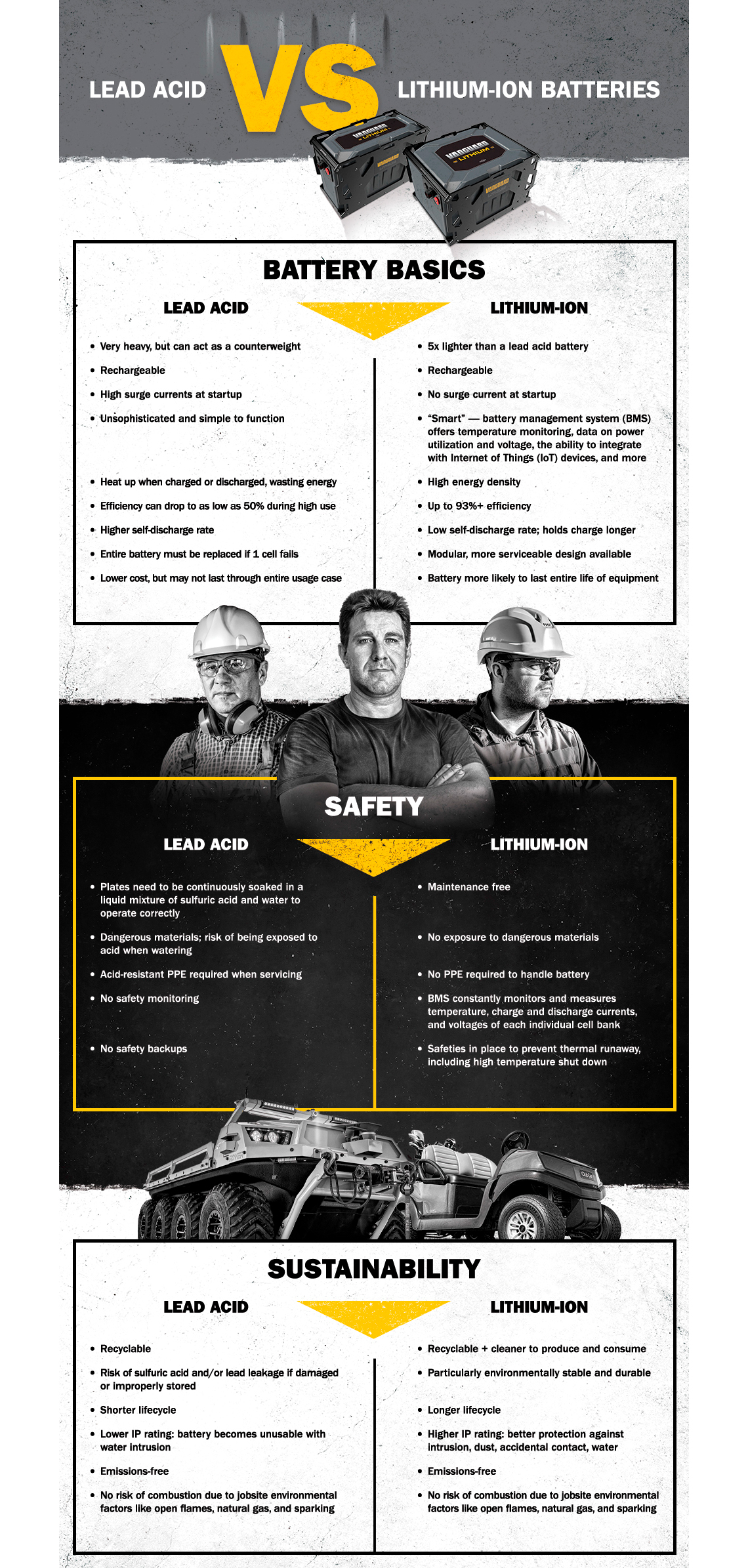What to Consider When Choosing a Battery Power Source for Your Equipment
Choosing a battery pack solution for your application may feel like unfamiliar territory. In this three-part series, our experts break down the differences between a lead acid battery and a lithium-ion battery.

Lead Acid versus Lithium-Ion Batteries
A lead acid battery gets the job done with no frills and is rechargeable, but it can be a cumbersome power source due to its weight and high internal resistance. In high use cases the efficiency can drop to as low as 50%.
Lithium-ion batteries are also rechargeable, but five times lighter than lead acid batteries. Their “smart” battery management system (BMS) offers temperature monitoring, data on power utilization and voltage, the ability to integrate with Internet of Things (IoT) devices and more. Operating at 93% efficiency, lithium-ion batteries hold their charge longer and have a longer lifespan than lead acid batteries. Plus their modular design is more serviceable.
Lead Acid versus Lithium-Ion Battery Safety
A lead acid battery has acid in it, of course. There is an opportunity to be exposed to acid when performing the service it needs to operate correctly — and acid-resistant PPE is required for protection against this dangerous material.
These hazards don’t exist with lithium-ion batteries. They’re maintenance free, and the Battery Monitoring System constantly monitors and measures temperature, charge currents, discharge currents and voltages of each individual cell bank. If the lithium-ion battery temperature rises during operation to unsafe levels, safety back ups prevent thermal runaway — including high temperature shut down.
Sustainability of Lead Acid versus Lithium-Ion Batteries
Cradle-to-grave, lithium-ion batteries are better for the environment. They’re cleaner to produce and cleaner to consume. They last longer in the field, and when it’s time for a new lithium-ion battery, you can recycle the old one. They are particularly environmentally stable and durable.
Lead acid batteries carry the risk of sulfuric acid and/or lead leakage if damaged or improperly stored. Plus they have a shorter life cycle so they generate more waste.
SEE THEM PUT TO THE TEST
Learn how Vanguard commercial lithium-ion battery packs are helping advance ARGO’s autonomous vehicle technology.




